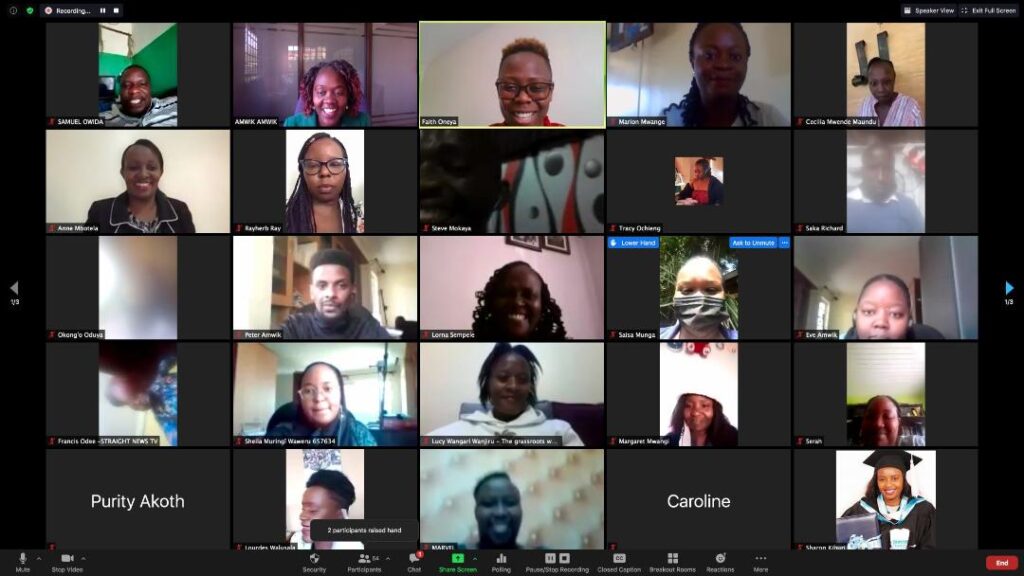Sixty journalists in Kenya have been trained on gender-sensitive COVID-19 reporting by the Association of Media Women in Kenya (AMWIK).
Marceline Nyambala, the association’s executive director said the two-day training was part of its sensitisation programmes that seek to promote balanced reporting in the Kenyan media space.
“There’s is an imbalance in gender reporting, and this is contributed to by several factors, among them lack of skills and fears and threats,” said Nyambala.
Richard Saka, one of the participants and a radio journalist who works at Milele FM lauded the organizers. He disclosed that he’s learnt new skills, which would enhance his profession.
“I learnt how to report on gender-based violence, especially when it involves children. For so long I didn’t know how to especially report well on the issue, without jeopardizing the children’s future lives. But you know these are the things which we were not taught in college, but which are very vital in promoting journalism. I’m happy I learnt that among other things, and I’ve already done several stories on gender-responsive reporting,” he said.
Anne Mbotela, an AMWIK member, motivational speaker and media trainer was one of the coaches during the two days’ sessions. She said that issues in gender have been imbalanced for long.
“You just look at the statistics. They show it so clearly that women are being sidelined in almost every aspect. You know our societies are deeply patriarchal, a thing that they’re still struggling to do away with. That’s why you find that even in the media, women’s issues are not being articulated as it ought to be, or at least as men’s,” said Mbotela.
She added that it was important to have men attend the training as they’re also important in promoting gender-sensitive storytelling.
“If we can’t allow them into the room, how can they know what our real problems are? We need them in these efforts, even as we seek to promote a balanced society in the political arena, social, economic and even in the newsrooms,” she said.
For Lucy Wangari, a freelance journalist, the training was an eye-opener.
“I got to learn that women have also been impacted by the pandemic, while others have impacted the world positively during this time. These are stories that we don’t hear about so much. I learnt and now I am determined to reach out to women of resilience and tell their stories, even as I highlight the plight of those draining in the COVID-19 pandemic and other problems” she said.
After the training, the sixty journalists were divided into two groups, for mentorship. In the mentorship programs, they were coached to produce/write stories in relation to what they learnt. Ms Mbotela said that was the more serious part of the training.
“Theoretical training is just easy. You don’t do much. But with the mentorship program that is still ongoing, you get to know separate chaff from the wheat. This is where you know who’s serious in putting to practice what they learnt. We just guide them from the story ideas to execution. We guide them through coming up and executing stories that can change lives and turn lives around. I’m happy because it is working. Already some of my mentees have done the stories,” she said.
Upon publication and broadcast of the stories, the journalists will be awarded prizes.


